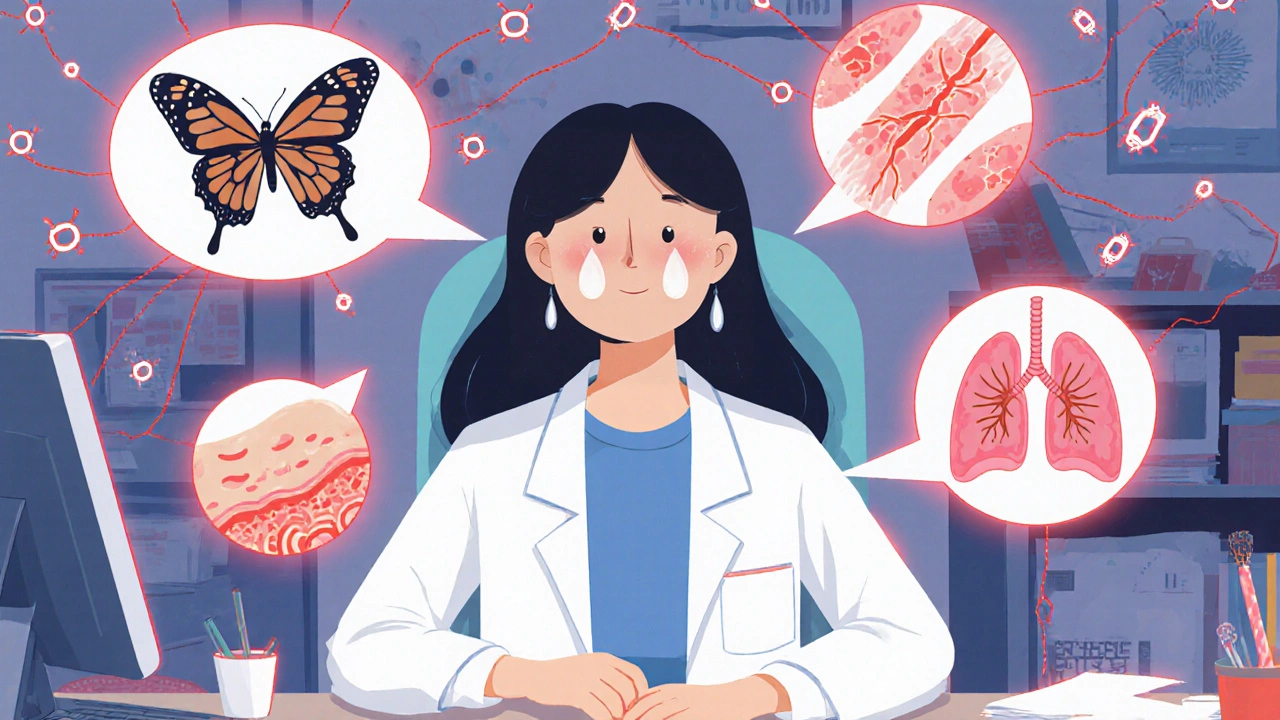When your immune system turns against your own body, it can trigger something called antisynthetase syndrome, a rare autoimmune disorder that targets enzymes involved in protein building, often linked to the anti-Jo-1 antibody. Also known as anti-synthetase syndrome, it’s not just one symptom—it’s a cluster of problems that hit muscles, lungs, and skin at once. This condition doesn’t show up overnight. It creeps in with tired muscles, a dry cough that won’t quit, or patches of red, scaly skin on your knuckles. Many people mistake it for arthritis or a bad cold—until breathing becomes harder and walking up stairs feels impossible.
What makes antisynthetase syndrome tricky is how it overlaps with other autoimmune diseases. It often comes with interstitial lung disease, scarring in the lungs that reduces oxygen flow and causes shortness of breath, which is the leading cause of long-term complications. About 70% of patients also have muscle weakness, especially in the hips and shoulders, making daily tasks like lifting groceries or climbing stairs a struggle. And if you notice thickened, cracked skin around your fingers—called mechanic’s hands—that’s a classic red flag. The trigger? Usually the anti-Jo-1 antibody, a specific marker found in blood tests that helps doctors confirm the diagnosis. But not everyone with the syndrome has this antibody, which is why testing and experience matter.
Treatment doesn’t mean a cure, but it does mean control. Most people respond to steroids like prednisone, sometimes combined with drugs that calm the immune system—think methotrexate, azathioprine, or mycophenolate. Physical therapy helps rebuild strength, and pulmonary rehab can improve breathing. The goal isn’t to erase the disease, but to stop it from stealing your life. And while it’s rare, knowing what to watch for can make all the difference. If you’ve had unexplained muscle pain, lung issues, or skin changes for months, it’s worth asking about antisynthetase syndrome.
The posts below dive into real-world cases, treatment trade-offs, and how this condition connects to other autoimmune and lung-related disorders. You’ll find practical advice on managing symptoms, understanding test results, and navigating long-term care—without the fluff or jargon.

Autoimmune overlap syndromes occur when patients show signs of two or more autoimmune diseases at once. Learn how these complex conditions are diagnosed, treated, and why coordinated care is essential for better outcomes.
View more